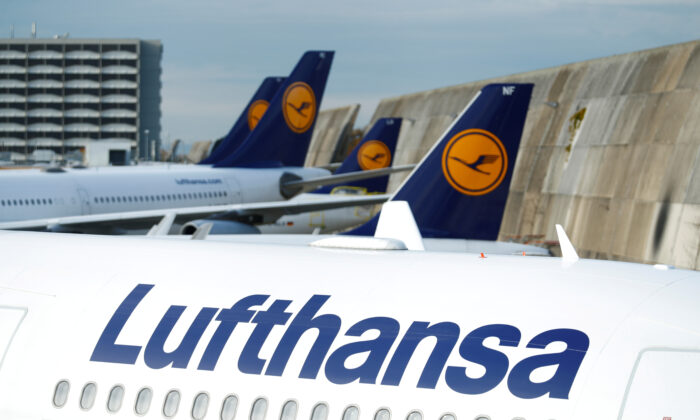The German airline also cites high cost and weak demand as reasons for the consideration.
German airline Lufthansa is considering whether to continue operating daily flights between Frankfurt and Beijing because of high cost, weak demand, and unequal competition from other countries, especially China.
A final decision on whether to cut the connection from Frankfurt will be made in October, a Lufthansa spokesperson said on Sept. 20. The airline “is continuously evaluating and optimizing its entire route network,” the spokesperson said.
During the Russian–Ukrainian war, since 2022, Russia has closed its airspace to most European airlines as retaliation for the West’s sanctions after it invaded Ukraine. Lufthansa flights have to detour to the south to avoid Russian airspace, adding to flight times, which increases costs.
Meanwhile, Chinese airlines, those from the Middle East, and others have shorter flight times and lower costs, benefiting from being allowed to use Russian airspace during the past two years. They also gain advantages because of other lower business costs and high government subsidies, according to the Lufthansa spokesperson.
The spokesperson said that by contrast, European airlines have operated at much higher costs incurred by rising taxes and fees, high government regulatory requirements, and inadequate infrastructure, which significantly reduces their international competitiveness.
In the meantime, Lufthansa will continue daily flights from Frankfurt, Germany’s busiest airport, to Shanghai.
Sun Kuo-hsiang, professor of international affairs and business at Nanhua University in Taiwan, told The Epoch Times on Sept. 21 that in recent years, weak demand for routes between China and Europe, coupled with rising operating costs, has made these routes “no longer attractive for the European airlines.”
Chinese American economist Davy J. Wong told The Epoch Times on Sept. 21 that after the Chinese Communist Party’s draconian COVID-19 lockdowns and restrictions, “demand for tourism and business visits to China dropped rapidly and has never recovered.”
“Especially in Beijing, which is a political and economic destination, the number of clients coming and going has been severely reduced,” he said.
Wong pointed out that there are also political factors involved in Lufthansa’s decision.
“Now Beijing’s unfriendly attitude towards foreign companies has become increasingly obvious,” Wong said. “Relatively speaking, the restrictions the foreign airlines are subject to may also become higher and higher. Economic reasons are the main ones, followed by political reasons.”
In August this year, British Airways announced that it would cut routes to Beijing at the end of October.

Wong predicted that more Western airlines will be canceling flights to China in the future.
“At present, most are European airlines, and then airlines in the United States,“ he said. ”[This is] because of unequal competition: China subsidizes Chinese airlines to fly many international routes to dominate the market, regardless of losses or profits. This is the same as the [Chinese Communist Party’s] dumping of goods in the West.”
Sun concurred that in the future, more Western airlines may make similar decisions because of “weak market demand, slow tourism recovery after COVID-19, and geopolitical factors.”

The possible effects if more Western airlines cancel their flights to China on the Chinese regime, Sun said, include “economic losses, as the aviation industry is a key pillar of Sino-foreign trade, attracting foreign investment, and tourism.”
“Cutting more routes to China may affect its business travel, international trade, and tourism revenue,” Sun said.
Sun said it could damage the Chinese regime’s international image, especially the geopolitical reasons for the Western airlines’ cutting routes to China.
“It may deepen the outside world’s impression of China as closed and isolated,” Sun said.
It will cause transportation difficulties for China, as the reduction of direct air connections between China and the outside world “may cause delays or reductions in cross-border exchanges, investment, and cooperation,” Sun said.
Wong added that the unequal competition from Chinese airlines has caused huge losses to major Western airlines, which have considerable influence in Western politics. They may lobby the U.S. and European governments to put more international economic pressure on China.
“On the one hand, they may pressure Beijing to provide more preferential treatment to foreign investors, or they may urge the European Union and the United States to put restrictions on certain China’s industries, products, or other trade practices,” Wong said.
Luo Ya and Reuters contributed to this report.

